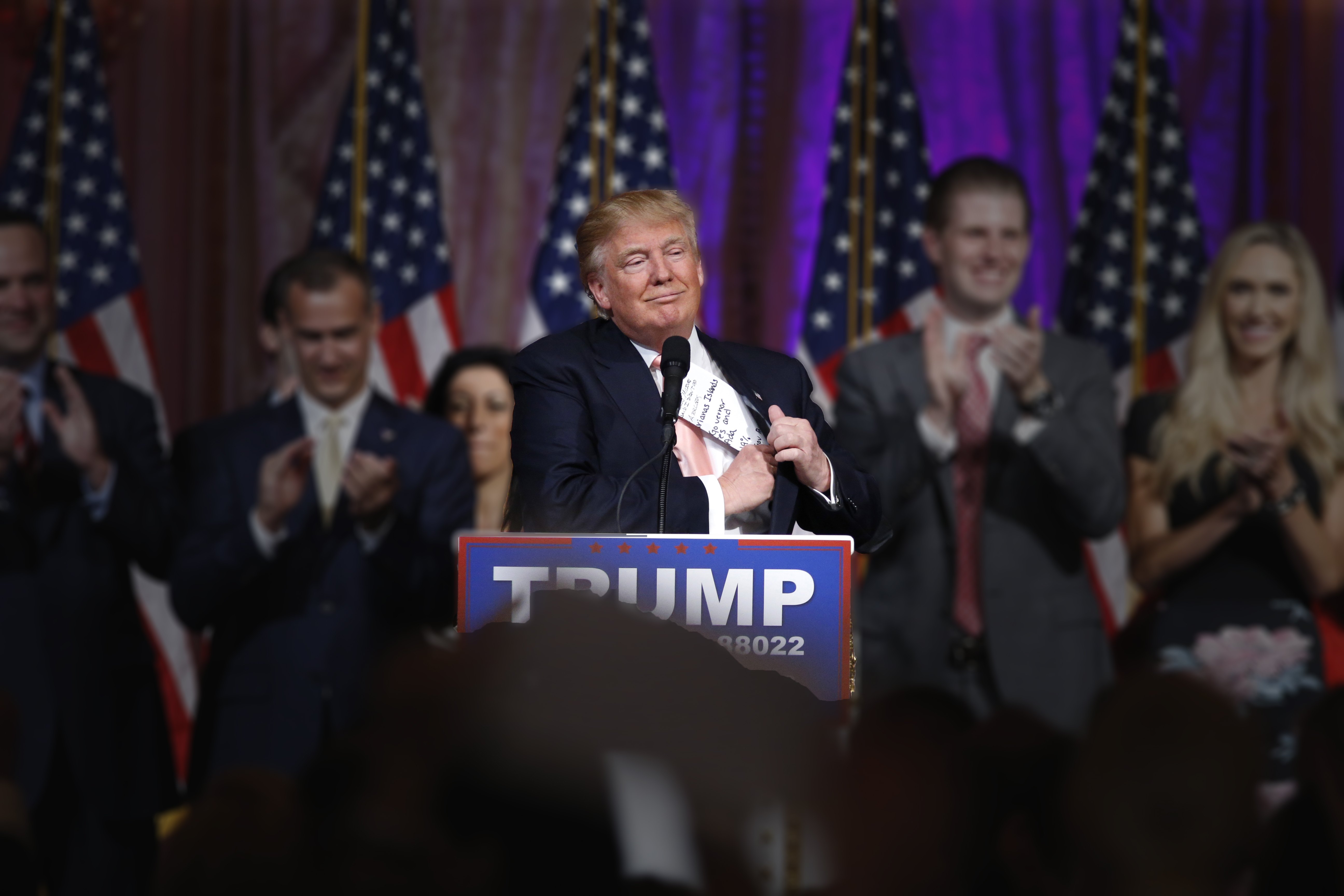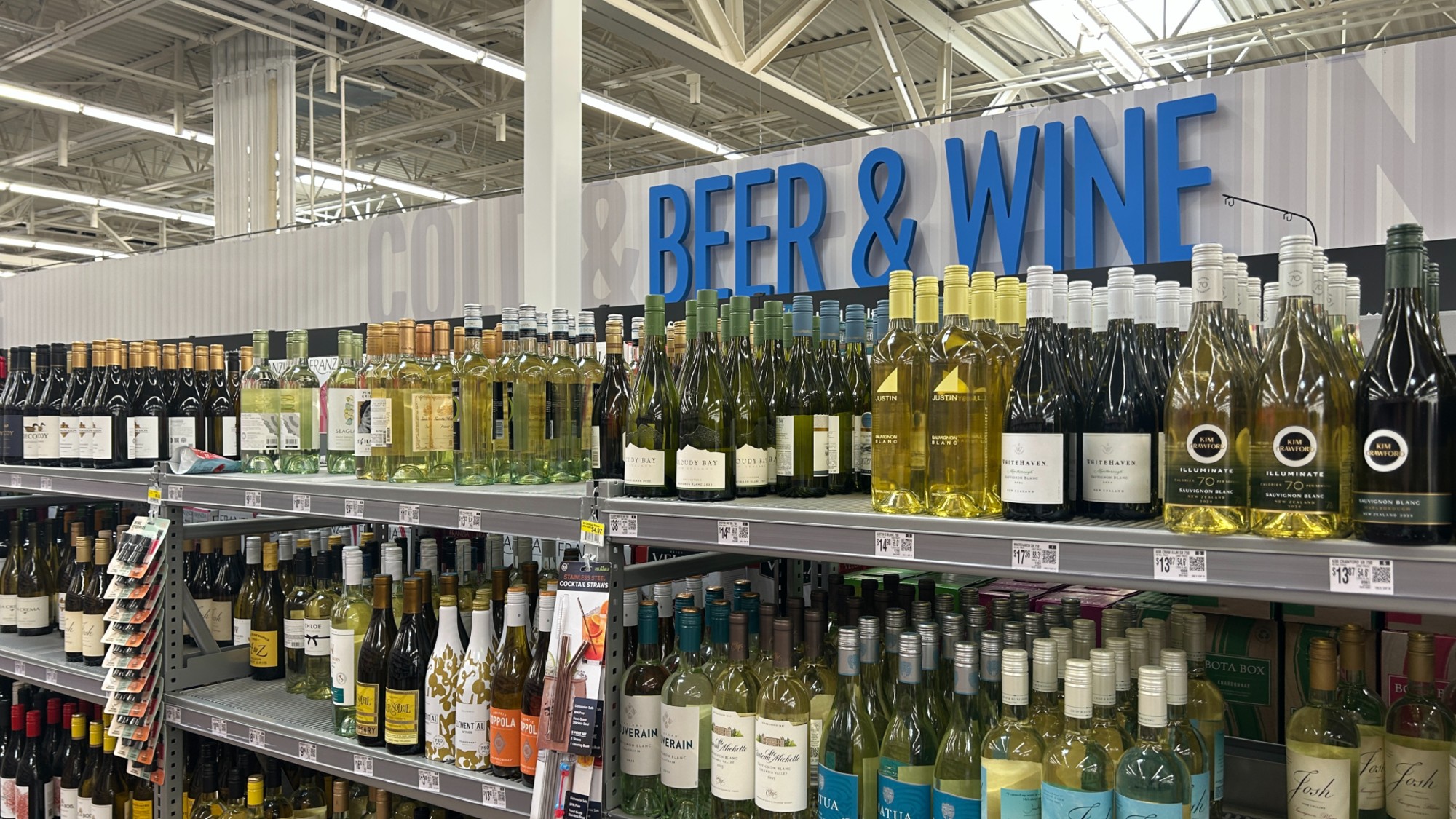Donald Trump is unstoppable
Donald Trump is beating his rivals with remarkable consistency and with more than enough decisiveness to get the majority of delegates he needs to win the nomination outright


When historians tell the story of the 2016 election, they may choose to break down the Republican race into a succession of fleeting moments or moods — each of them expressing a wish for Donald Trump to disappear.
Long before a single vote had been cast but months after Trump rose to the top of every opinion poll, there was the "Rubio is the virtual frontrunner" moment. That was followed by the "Trump's support will vanish once the voting begins" consensus. Then, as the primaries and caucuses began and Trump took the lead in delegates and never lost it, we entered the phase that could best be described as "Trump will start faltering as soon as more of his opponents drop out." That lasted for weeks, as one by one, his opponents dropped out.
And yet, Trump kept winning more states. He racked up more delegates than anyone else. Along the way there was the brief "Trump is losing!" boomlet, followed by the emerging conventional wisdom of the past couple of weeks: Even if he finishes in first place, Trump will fail to win more than a plurality of delegates, falling short of the magic number (1,237) needed to become the automatic nominee.
The Week
Escape your echo chamber. Get the facts behind the news, plus analysis from multiple perspectives.

Sign up for The Week's Free Newsletters
From our morning news briefing to a weekly Good News Newsletter, get the best of The Week delivered directly to your inbox.
From our morning news briefing to a weekly Good News Newsletter, get the best of The Week delivered directly to your inbox.
And that brings us to The Present Moment: A contested convention awaits!
No, it doesn't.
Like every other Trump Doomsday Prediction of the past nine months, this one is an expression of denial. The depressing and exceedingly ominous fact is that Donald Trump is winning. Not everywhere. Not always by an enormous margin. But he's beating his rivals with remarkable consistency and with more than enough decisiveness to get the majority of delegates he needs to win the nomination outright. That, and not some fanciful contested convention in which the non-Trump majority miraculously comes together to thwart the man with the plurality of delegates in his pocket, is by far the more likely scenario.
This would have been true even if Trump hadn't won Florida, Illinois, and North Carolina on Tuesday. But that outcome makes his ultimate victory far more certain. Not only did he pick up at least 150 delegates on Tuesday (that's a conservative estimate, and will go way up if Trump maintains his razor-thin lead in too-close-to-call Missouri). But John Kasich's victory in his home state of Ohio, while depriving Trump of the state's 66 delegates, ensures that Kasich will stay in the race for at least a few weeks longer, continuing to divide the non-Trump vote in Arizona and Utah on March 22 and maybe Wisconsin on April 5 and beyond.
A free daily email with the biggest news stories of the day – and the best features from TheWeek.com
The longer Trump gets to face a divided field, the longer Cruz has to wait to consolidate the non-Trump vote. And the more victories and delegates Trump will pile up.
And there's a very big pile ahead.
Trump already has at least 621 pledged delegates, and will rack up more as Tuesday's votes are finalized. He already has more than half of what he needs to clinch the nomination. Between now and the last primaries on June 7, there will be eight (state- or district-level) winner-take-all contests — in Arizona, Wisconsin, Delaware, Maryland, Indiana, California, New Jersey, and South Dakota. That's another 439 delegates. If Trump won all of them, he'd have 1,060 — just 177 delegates short of what he needs.
Now Trump probably won't win all of those states — and he probably won't win all of the delegates in all of the states he does win, because of the quirks of district-level delegate allocation. But that leaves a long list of proportional states where Trump will surely win significant numbers of additional delegates. Cruz may win big in Utah, New Mexico, and few other places. (Mitt Romney's attack on Trump will carry a lot of weight among the many Mormons in the former, while the latter borders Cruz's home state of Texas.) But what about Trump's home state of New York (with 95 delegates), and Maryland, and Pennsylvania, and West Virginia, and Oregon, and Nebraska, and Washington, and Connecticut, and Rhode Island? Maybe Cruz will carry Nebraska and another state or two. But will Trump really lose enough states to fail to earn the delegates he'll need?
Nothing we've seen over the past couple of months gives us any reason to conclude that. Trump has swept the South, but he's also won Massachusetts, Nevada, Michigan, and Illinois. Even the mantra recited endlessly by Trump skeptics — he's only capable of winning a third of the Republican electorate! — has begun to be proven wrong. His vote share has now climbed to 37.1 percent, and he's won several major states with considerably higher totals, most notably the high-population and demographically heterogeneous Florida, with just under 46 percent of the vote.
With Trump facing only two opponents now, that total will climb further. It will likely remain a low number by historical standards, but he's approaching the level of party support attained by Democrats Walter Mondale in 1984 (38.3 percent) and Jimmy Carter in 1976 (40.2 percent). Again: low. But not unprecedented.
None of which means we should be cheering on Trump's march to the nomination of his party. His campaign is tearing the Republican Party apart and injecting a form of authoritarian thuggishness into American politics that should send a chill down the spine of anyone who cares about the nation's liberal democratic traditions and civic norms.
But that doesn't mean we should allow ourselves to give in to more rounds of wishful thinking. Trump is winning. And it's hard to see how that winning can be stopped.
Damon Linker is a senior correspondent at TheWeek.com. He is also a former contributing editor at The New Republic and the author of The Theocons and The Religious Test.
-
 Why is the Pentagon taking over the military’s independent newspaper?
Why is the Pentagon taking over the military’s independent newspaper?Today’s Big Question Stars and Stripes is published by the Defense Department but is editorially independent
-
 How Mars influences Earth’s climate
How Mars influences Earth’s climateThe explainer A pull in the right direction
-
 ‘The science is clear’
‘The science is clear’Instant Opinion Opinion, comment and editorials of the day
-
 The billionaires’ wealth tax: a catastrophe for California?
The billionaires’ wealth tax: a catastrophe for California?Talking Point Peter Thiel and Larry Page preparing to change state residency
-
 Bari Weiss’ ‘60 Minutes’ scandal is about more than one report
Bari Weiss’ ‘60 Minutes’ scandal is about more than one reportIN THE SPOTLIGHT By blocking an approved segment on a controversial prison holding US deportees in El Salvador, the editor-in-chief of CBS News has become the main story
-
 Has Zohran Mamdani shown the Democrats how to win again?
Has Zohran Mamdani shown the Democrats how to win again?Today’s Big Question New York City mayoral election touted as victory for left-wing populists but moderate centrist wins elsewhere present more complex path for Democratic Party
-
 Millions turn out for anti-Trump ‘No Kings’ rallies
Millions turn out for anti-Trump ‘No Kings’ ralliesSpeed Read An estimated 7 million people participated, 2 million more than at the first ‘No Kings’ protest in June
-
 Ghislaine Maxwell: angling for a Trump pardon
Ghislaine Maxwell: angling for a Trump pardonTalking Point Convicted sex trafficker's testimony could shed new light on president's links to Jeffrey Epstein
-
 The last words and final moments of 40 presidents
The last words and final moments of 40 presidentsThe Explainer Some are eloquent quotes worthy of the holders of the highest office in the nation, and others... aren't
-
 The JFK files: the truth at last?
The JFK files: the truth at last?In The Spotlight More than 64,000 previously classified documents relating the 1963 assassination of John F. Kennedy have been released by the Trump administration
-
 'Seriously, not literally': how should the world take Donald Trump?
'Seriously, not literally': how should the world take Donald Trump?Today's big question White House rhetoric and reality look likely to become increasingly blurred
